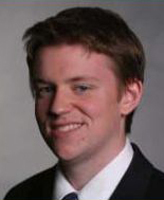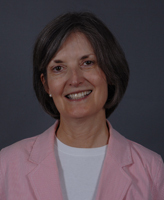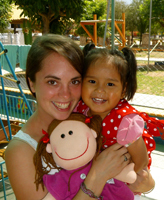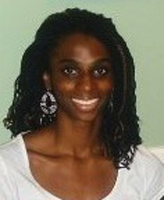
As a sociology major at the University of Notre Dame, Joshua Cook ’10 learned about everything from criminal behavior to popular culture to family dynamics. And the deeper he got into his studies, he says, the more he realized that “understanding human behavior could serve as a great foundation for a career in a variety of fields, including the business world.”
Today, Cook is a market research project coordinator with Maritz Research in St. Louis, working to help companies better understand their target markets. “I aid in preparing and launching market research surveys, then oversee the fieldwork process.”
His background in sociology, he says, gives him a distinct advantage over colleagues who do not have a degree in the liberal arts. “Marketing is all about understanding people and trying to anticipate how they will respond to various aspects of a marketing campaign, and the most successful people in marketing not only understand human behavior but also have critical thinking and research tools to learn about their target market.
“I’ve found that I can dig deeper into market research results to pull out trends and ideas that others may not have noticed.”
Real-World Versatility

Building a career in the business world, of course, is not the only path open to sociology majors. Sociology students in Notre Dame’s College of Arts and Letters develop a skill set as varied as their undergraduate schedules and go on to enter elite service programs, enroll in graduate and professional schools, and pursue a diverse range of careers.
A survey of recent alumni who majored in sociology showed that they are now employed as business managers, consultants, corporation executives, insurance agents, medical administrators, politicians, realtors, religious ministers, social workers, teachers, university professors, and more.
This versatility stems, in part, from a strong foundation in the liberal arts, says Ann Marie Power, associate professional specialist and director of undergraduate studies in the Department of Sociology.
“They learn to do deep textual analyses, to pose questions, and to consider problems in broader contexts such as history and culture. They learn to write well and to construct persuasive arguments,” she says.
“Sociology majors, regardless of where they wind up, all know how to read the social world in a disciplined, thoughtful way,” Power says. “This should make them more effective than the average person in dealing with social issues, such as diversity, culture, or globalization.”
Serving Society

About a quarter of Notre Dame’s sociology majors choose to pursue a year or two of domestic or international service work after graduation. Katie Weber ’10, for example, deferred her acceptance into a graduate program at Washington University in St. Louis to spend 16 months in Bolivia.
There, she volunteered for Amanecer, which provides education, vocational training, medical care, and other services to orphans in the city of Cochabamba. Weber spent her time caring for a group of approximately 20 children, ages one to three. She also served as a tutor for six- to 12-year-old boys and as a volunteer coordinator for the organization.
“Over the course of 16 months,” she says, “not only was I introduced to children who stole my heart but my patience was tested, my analytical skills heightened, and my inspiration to be a social worker further ignited.”
Now back in the United States, Weber is preparing to get her master’s in social work. “I look forward to learning more as I head off to grad school, but I know that the foundation of my passion, my work ethic, and my drive came from the Notre Dame Department of Sociology.
“The great thing about the breadth of the department,” she adds, “is that you are given the opportunity to expand upon and foster any particular passion within the context of the designed class or by creating your own independent study.”
Ready for Research

This foundation also makes sociology majors well suited for post-graduate research, which is the path Maryann Erigha ’07 chose.
A Ph.D. candidate at the University of Pennsylvania, Erigha says her interest in sociological research grew out of her experiences as an undergraduate.
“The faculty were eager to help in my first forays into research, and the courses offered a good balance for my interests in studying and writing about issues in civil rights and educational inequality.”
Erigha’s work as a graduate student spans gender and feminist theory, race and ethnicity, work and occupations, and film and media studies, including a current project on black directors in the American film industry.
“As an undergraduate working on research projects and writing a senior thesis, I developed critical and analytical writing skills,” Erigha says. “During the Ph.D. program, these skills have helped me in conducting research for my master’s paper and writing articles for academic journals.”
A Lifelong Perspective
Whatever the path they take after graduation, Power says, sociology majors are well prepared to observe, analyze, and understand the world around them.
“No matter where you go in life or what you choose to do, you will be with people,” she says. “Sociology helps you to understand more deeply what is going on beneath the surface.
“And workplace organizations and institutions of higher education,” she adds, “are looking for people who can think critically and analytically, who can deal with facts as well as figures, and who can think locally as well as globally.”


